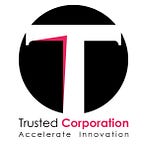THE WINE INDUSTRY IS GOING TECH
Traditional viticulture is embracing innovation to face its recent challenges
The European Union is the world’s largest producer of wine, representing 60% of the world’s consumption, 45% of the world’s wine-growing areas, and 70% of exports.
According to the FAO report statistics, with an annual wine production of almost 5 million tons of wine, Italy is the largest wine producer in the world, followed by Spain and France. Its renowned finesse is given by the fact that grapes destined for winemaking are grown locally and the country has an ideal climate for its cultivation, with over one million vineyards located in every region and a pro-capita consumption of over 42 liters.
The difficult era the world is going through has not spared European wine-growing companies, who are constantly confronted with all kinds of challenges: from environmental issues, to economic, human, and technological, leaving the traditional wine industry with no other choice than modernization. Although an increasing number of producers are embracing organic and biodynamic practices in their vineyards, a significant number of wines are mass-produced industrially and the environmental threats are enormous. Viticulture consumes the most crop protection products, which include agricultural chemicals such as weed killers, synthetic fertilizers, pesticides, as well as machine harvesting (causing direct pollution with fuel emissions). The French wine industry has been the first one to take a step forward on this matter, committing to reduce by 50% the use of such products by 2025. Viticulture has also been highly impacted by climate change mainly as a result of global warming, droughts, changes in precipitations, and soil erosions. As an additional consequence, the heat is affecting the labor force too, causing harvesters to work in extremely unfavorable work conditions. Mechanized forms of harvesting can pose a major solution to this issue: vineyard robots can make tasks less difficult, optimize working time, and increase profitability.
The French company Naïo Technologies, pioneer in agricultural robotics, has designed, developed, and marketed fully electric and autonomous robots which assist farmers in their workload and reduce the use of chemical inputs. Their 4G connection, moreover, sends data directly from the field, allowing real-time supervision and enabling AI to track the progress and the quality of the work done.
Similarly, VitiBot has designed electrical agricultural robots which automatically remove weeds, therefore reducing the use of weedkillers. Viticulture can transition towards increased sustainability thanks to innovation and technology. This is not it. The wine sector has been modernizing in a wide variety of areas, especially since Covid-19, leading to the rise of many new digital wine marketplaces such as Vivino and virtual experiences like immersive digital wine tasting platforms as VIVANT. Such companies have the goal to connect conscious and passionate consumers and responsible winemakers, empowering a sustainable future for the wine industry. Pressure from consumers and citizens, who are always more informed and conscious, has required winegrowers to radically change the way they produce wine, leaving them no other choice than to innovate in such a traditional and historical sector.
In a sense, wine-making can be seen as a proper and unique art. If we stop and think about it, we will never really drink the same exact glass of wine, even if it comes from the same producer, the same year, and the same vineyard: each individual grape is exposed to different sunlight, shadow, wind, and other external factors, which lead to a slight change in taste: that’s also why wines are classified based on years. Moreover, when it comes to nature, we should always remember that good things take time, even when we are embracing innovation. Therefore tools, robots, and machines should never alter the natural and human process, rather support it and aid its flourishing.
At Trusted Corporation we endeavor to accelerate open innovation ecosystem building. We offer innovation planning workshops; a startup finder platform to find startups for you that have already developed technologies you’re searching for; tech sharing for your underutilized patents
Contact us now for a free consultation at contact@trusted-inc.com.
Valeria Morone
Marketing & Communication
Trusted Corporation
